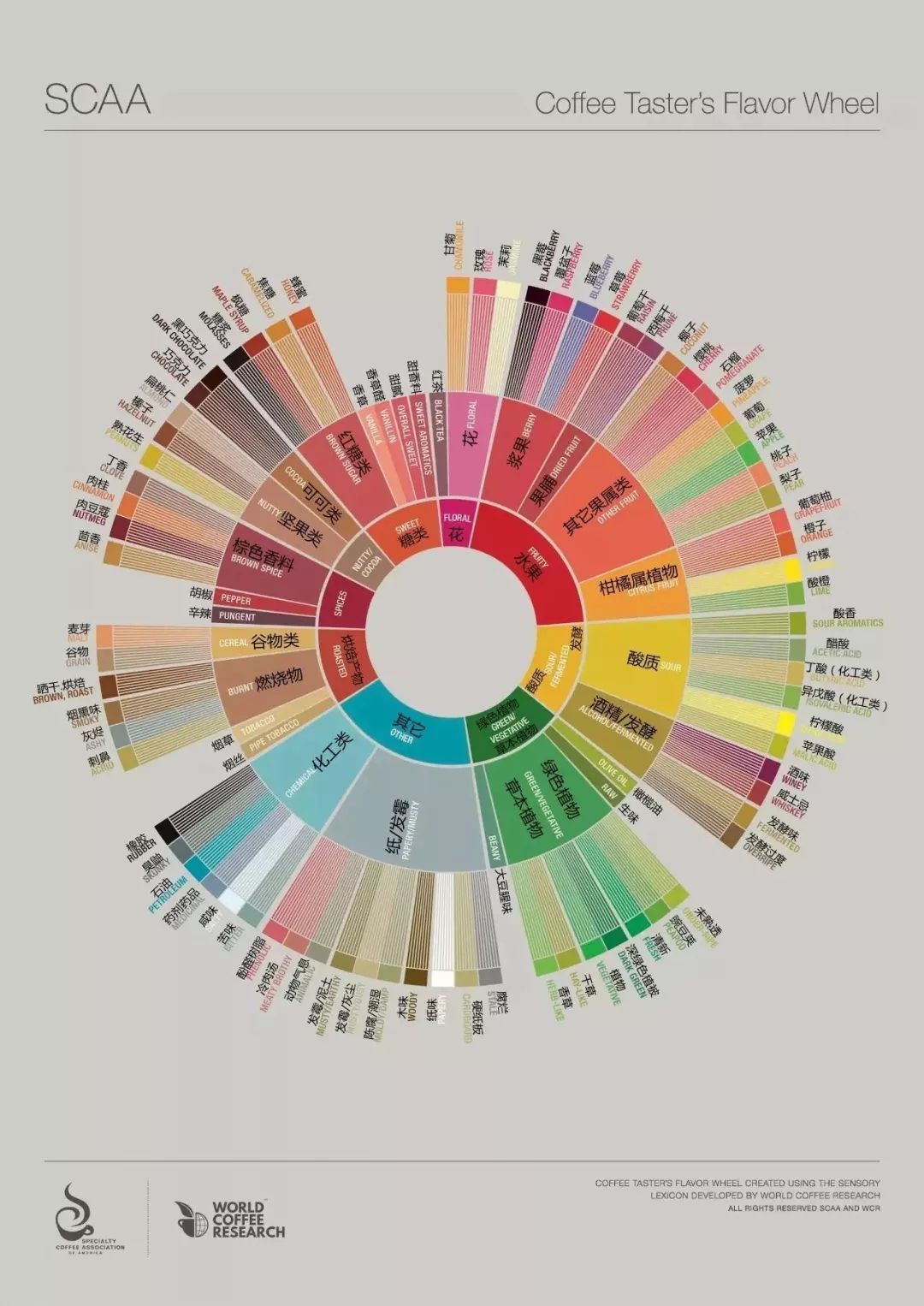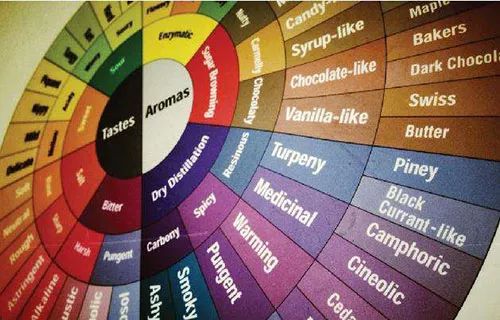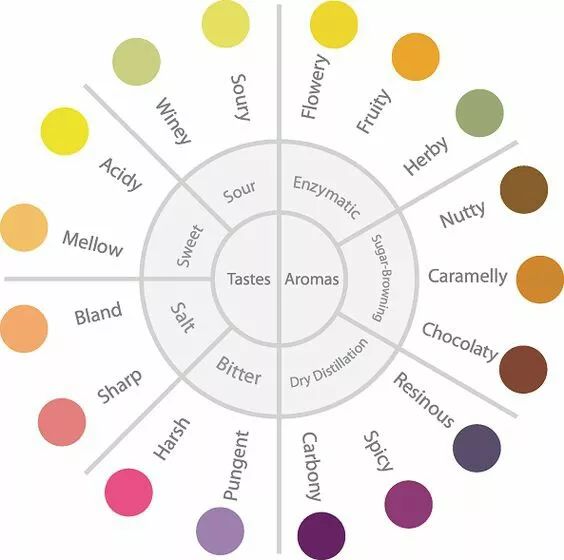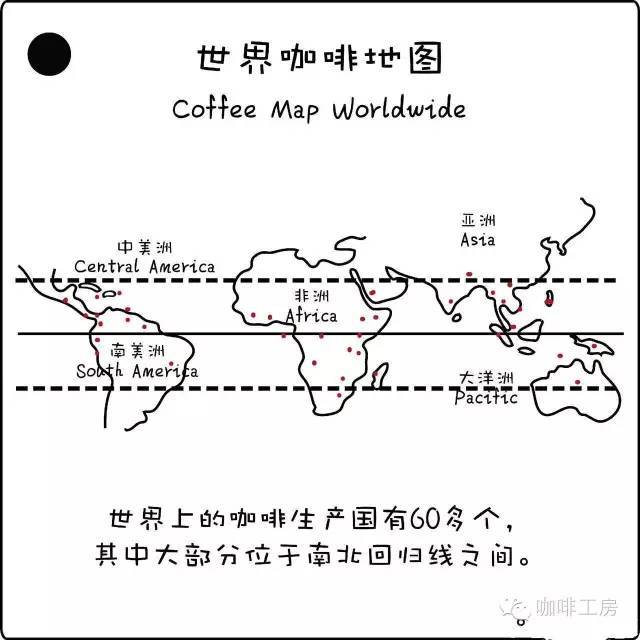Coffee tasting | what conditions do you need to understand coffee?
Professional coffee knowledge exchange more coffee bean information please follow the coffee workshop (Wechat official account cafe_style)
I believe that many enthusiasts will encounter such a situation. I buy a bag of beans with citrus and peach flavor, but I can't taste them, so I suspect it's the beans, the cooking, or the senses.
The flavor of coffee bothers many students. How can I not drink so many flavors on the flavor table? ~ after all, not everyone has professional feelings, or I drink not peach flavor, but plum flavor. The reason for this difference is the different regions of cultural life and diet, different descriptions of the same cup of coffee, so coffee taste, the most important thing is to communicate, tell us how you feel about this bean. Different cultures, different experiences, the description must be different, but this kind of communication can bring a lot of fun, isn't it?
To give a simple example of the above SCAA flavor wheel, the chocolate aroma reflected in Mena's reaction, such as milk chocolate, dark chocolate and white chocolate, which enthusiast can really tell the difference between these three chocolate flavors without special training or high level of taste (now even chocolate has a flavor wheel, )

To understand coffee, you need three conditions:
The first one: have you ever experienced a similar sense of taste and smell? if you haven't eaten peaches, of course you can't taste peaches.
The second: it is recommended that you wait until the coffee is completely cold before tasting it, because usually the fruit tonality of the coffee will not be recognized until it is cold, and the coffee flavor will unfold as the temperature drops.
Third: the intensity of coffee can also affect the tonality of a cup of coffee. If it is a lightly roasted coffee that is over-tuned, it is recommended to dilute it and open the taste spectrum to make it easy to find the taste in it (this is easy to explain why the ratio of powder to water measured in the cup is 1buzz 18.18).

For example, to taste a good cup of Yega coffee, the steps:
Drink coffee with a small sip, drink slowly, or even gargle and gently stir the coffee liquid in your mouth.
Each mouthful will expand with the change of temperature, and the roots of the first two tongues will be bitter. When the coffee temperature is cold, it will slowly change from bitter to sour, subtle citrus acid.
In the middle of the drink, the coffee changes from sour to sweet, from bitter to sweet, begins to taste sweet, has a sweet taste on the tongue, and finally has a sweet aftertaste to caramel, staying between the mouth and nose, tasting the aftertaste of coffee through the sense of smell behind the nose.
Do not rush to wash the cup after drinking, to smell the sweetness of the bottom of the cup.

The brain receives information-"compare-analyze -" memory (the whole process)
We can smell a smell, taste a taste, but maybe we can't describe it very accurately. The flavor wheel can classify all the taste systems perceived by human beings, corresponding to the smell system is the smell wheel, with the practice of the two, we can clearly sense the slightest difference among all the odors.

Important Notice :
前街咖啡 FrontStreet Coffee has moved to new addredd:
FrontStreet Coffee Address: 315,Donghua East Road,GuangZhou
Tel:020 38364473
- Prev

Evaluate the regional characteristics of the two major coffee producing areas: [Africa] and [America].
In the preface, there are some vague definitions of fine coffee, such as variety, treatment and quality identification, but there are also some very clear definitions: only in the most favorable microclimate and soil and water can we grow high-quality coffee with unique flavor. Coffee belt coffee trees are only suitable for growing in the tropics or subtropics, so the zone between latitude 25 degrees south and north is the most suitable for growing coffee. And this...
- Next

Coffee tasting | Flavor characteristics of Sun Rose Summer Coffee and Water washed Blue Mountain coffee
Professional coffee knowledge exchange more coffee bean information please pay attention to the coffee workshop (Wechat official account cafe_style) sour, sweet, mellow, bitter, the perfect Jamaica Blue Mountains and fruit bombs, the entrance exploding Panamanian summer. What is the difference in flavor and taste between the blue mountains of Jamaica and the rose summer of Panama? The difference between dry and wet fragrance: Jamaica Blue Mountain: dark chocolate; nuts
Related
- How did the Salvadoran coffee industry develop in Central America?
- What exactly does the golden cup extraction of coffee mean?
- The Origin of Coffee flower
- [2023 Starbucks World Earth Day] there are more meaningful things besides free Starbucks coffee!
- What kind of coffee is there in Spain? 9 Flavors of Spanish Coffee
- Aromatic African coffee| Kenya's coffee culture and historical production area
- Liberica Coffee Bean knowledge: the characteristics of Liberian Coffee beans of the three original species of Coffee beans
- The origin and formula of Spanish latte introduces the taste characteristics of Bombon coffee in Valencia, Spain.
- How to adjust the solution of over-extracted coffee
- What is the tasting period of coffee beans? What is the period of coffee and beans? How should coffee wake up and raise beans?

